what is rsv in babies covid
Respiratory syncytial virus RSV is a highly contagious infection thats common in very young childrenso common in fact that most children have had at least one RSV infection by the time they reach their second birthday. I know that there are some studies as well that involve immunization of the baby which could be active immunization for RSVsimilar to the COVID-19 vaccine in which the immune response thats generated against the vaccine is whats providing protection.
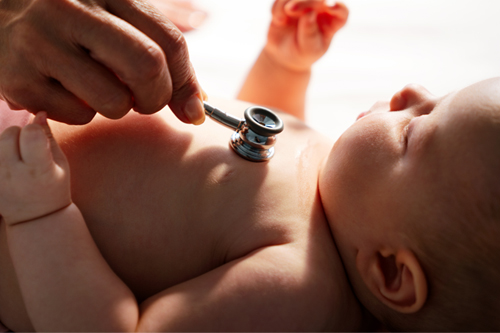
Why Is Rsv On The Rise This Summer
Symptoms like breathing difficulty are danger signs.
/cloudfront-us-east-1.images.arcpublishing.com/gray/FWAOGGYBHRHWPNYGWUCTQ7DKLY.jpg)
. What is RSV. RSV can be dangerous for some infants and young children. Congestion or runny nose.
In infants RSV can cause pneumonia or bronchiolitis an inflammation of the small airways in the lungs. Respiratory droplets are tiny sprays of water that come from your nose or. What is RSV.
When an infected person coughs or. There are vaccines and treatments specifically for COVID-19 but none for RSV. In children younger than 1-year-old RSV can lead to bronchiolitis and pneumonia.
Testing is the only way to identify which illness may be the cause. And for kids who are toddler-age and older symptoms tend to be mild like a common cold. A symptom that seems to be unique to COVID-19 is loss of taste or smell.
Fever cough and nasal congestion. RSV or respiratory syncytial virus is similar to the common cold and can infect children and adults. Babies under age 1 might be at higher risk of severe illness with COVID-19 than older children.
Newborns can get COVID-19 during childbirth or by exposure to sick caregivers after delivery. RSV symptoms range from mild to severe and commonly include. Its symptoms are similar to those of the common cold.
Heres why RSV respiratory syncytial virus is on the rise as COVID-19 restrictions lift. RSV is usually mild but not in babies RSV is a seasonal virus that primarily affects children and its really common. Large crowd of young people.
In cases with suspected COVID-19 infection it should be kept in mind if atelectasis is seen on chest radiography. The CDC reports it can be life-threatening in infants and young adults. Many of the symptoms of RSV infection are similar to those of COVID-19 in kids.
Each year in the United States an estimated 58000 children younger than 5 years old are hospitalized due to RSV infection. And no its not COVID-19. Respiratory failure may be more serious in RSV positive infants and RSV infection may be more dangerous for the neonatal period.
What is RSV. The highlight contagious virus can appear more severe in infants and elderly people. While most people recover in a week or two RSV can be serious for infants and older adults according to the Centers for Disease Control and Prevention.
People over the age of 50 or those with heart or lung disease are also at risk for complications and they can catch RSV from babies toddlers and older kids. It spreads a few different ways. It is also a leading cause of hospitalizations in all infants.
That would provide protection against RSV by. COVID-19 is caused by the novel coronavirus and with the emergence of the delta variant cases of COVID-19 among children are rising. RSV or respiratory syncytial virus causes mild cold-like symptoms.
Very young infants especially those 6 months and younger. Most kids have had the virus by the time they turn 2. The trial involved healthy term and late-preterm gestational age at least 35 weeks infants entering their first RSV season.
Those at greatest risk for severe illness from RSV include. Because infants cant adequately express many of these symptoms fever and changes in breathing or appetite are the best signs to watch out for. Multisystem inflammatory syndrome MIS-C sometimes develops in children after a COVID-19 infection though the.
RSV infection can be more serious in the neonatal period. After Covid-19 vaccine makers next big target is a respiratory virus that kills up to 500 children a year nationwide and has been among the leading causes of. Respiratory syncytial virus or RSV is a viral infection common in children.
Pediatric hospitals in Texas and around the country are reporting unseasonably early outbreaks of RSV a respiratory virus that mostly manifests as a mild illness with cold-like symptoms in adults but that can cause pneumonia and bronchiolitis in very young children. Trouble breathing or rapid breathing. 3 hours agoCongenital abnormalities remain the leading cause of death in the first year of life.
While accidents in general remain the most common cause of death in youth. RSV is a common contagious virus that causes seasonal epidemics of lower respiratory tract infections leading to bronchiolitis and pneumonia in infants. Respiratory syncytial virus RSV is a very common respiratory illness that can present with a runny nose fever wheezing and a cough.
RSV is a common respiratory infection in young children that usually occurs in winter but this year it has been spreading during the summer. And then there is passive immunity. Symptoms in babies present as Covid as parents warned of winter virus surge A little-known disease called RSV with symptoms similar to a cold and elements easily mistaken for Covid.
Kids with severe bronchiolitis caused by RSV are usually admitted to the hospital for supportive care like oxygen and intravenous IV fluids. RSV is a viral illness that causes symptoms such as trouble breathing. However babies 1 year and younger are much more susceptible to serious illness.
Infants 6 months or younger Babies who were born early Children under 2 with chronic lung or heart disease Children with a weak immune system. Its the most common cause of mucous plugging of the small airways in the lungs and pneumonia in babies. Unfortunately many of these symptoms overlap with other childhood illnesses such as respiratory syncytial virus RSV.
Both viruses can cause. Symptoms of RSV infection are similar to those of the common cold. RSV is a common respiratory virus that usually causes mild cold-like symptoms in most people according to the CDC.
Fevers Chills Headaches Cough Muscle soreness Fatigue Vomiting Diarrhea Shortness of breath Runny nose Sore throat RSV can infect anyone but is most dangerous in infants and the elderly. It can spread to the lower respiratory tract causing pneumonia or bronchiolitis. It spreads between babies children and older people in respiratory droplets similar to the way coronavirus and influenza spread.
It spreads when a cough a sneeze or even a loud conversation sends respiratory droplets flying through the air. If you have COVID-19 or are waiting for test results due to symptoms during your stay in the hospital after childbirth wear a well-fitting face mask and have clean hands when. RSV is very contagious.

Respiratory Syncytial Virus Rsv Allergy Asthma Network

Covid 19 The Flu And Rsv Baton Rouge Louisiana La Our Lady Of The Lake Children S Health

Respiratory Syncytial Virus Rsv National Foundation For Infectious Diseases
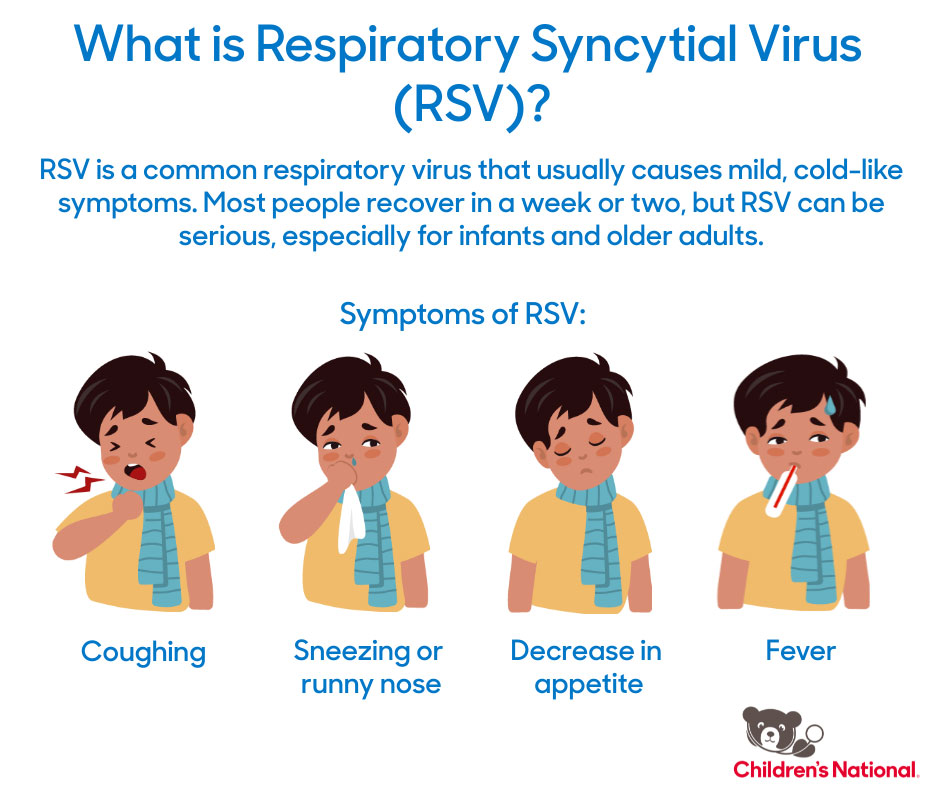
Respiratory Syncytial Virus Rsv Children S National
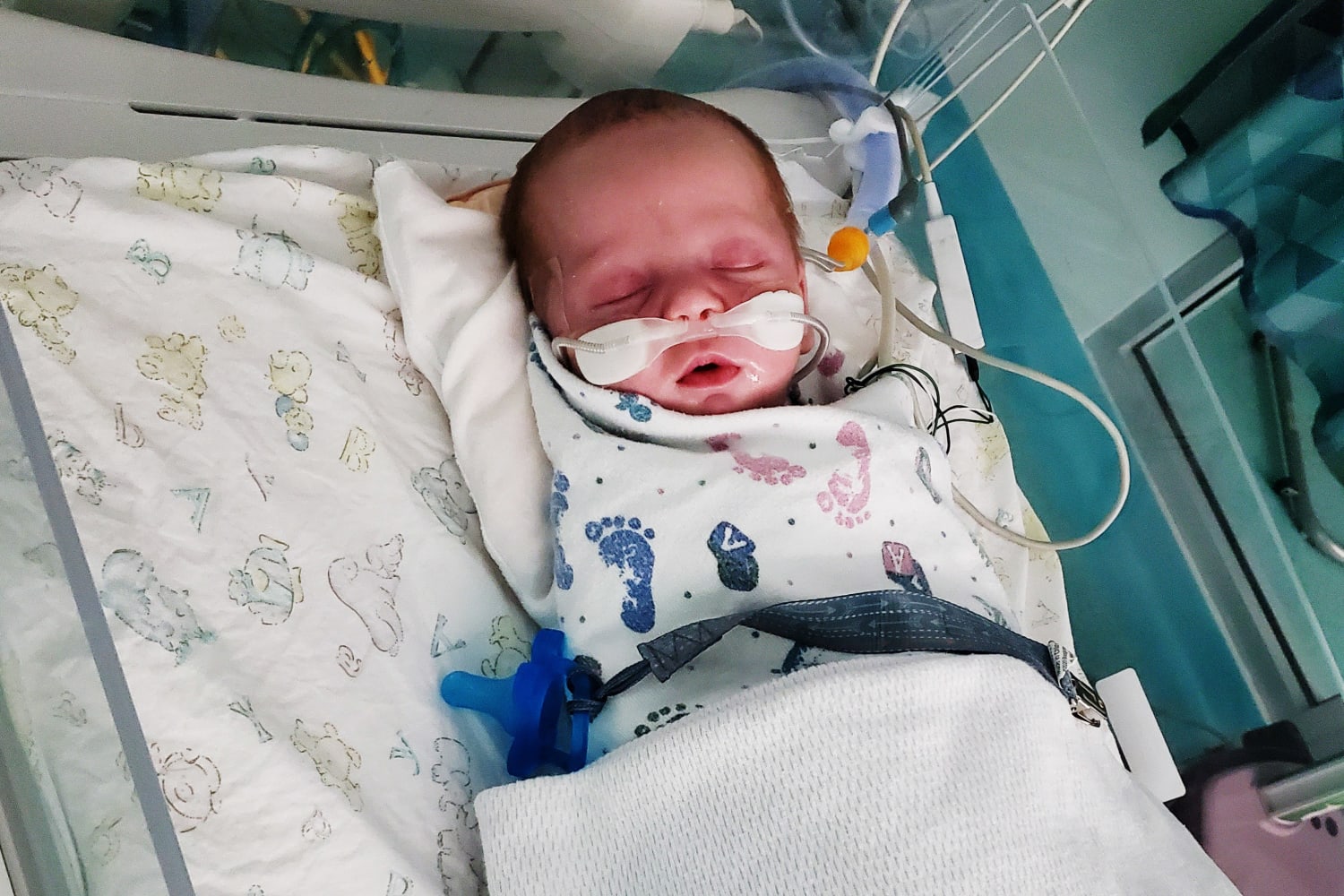
Rsv Treatment May Prevent Respiratory Virus In Babies
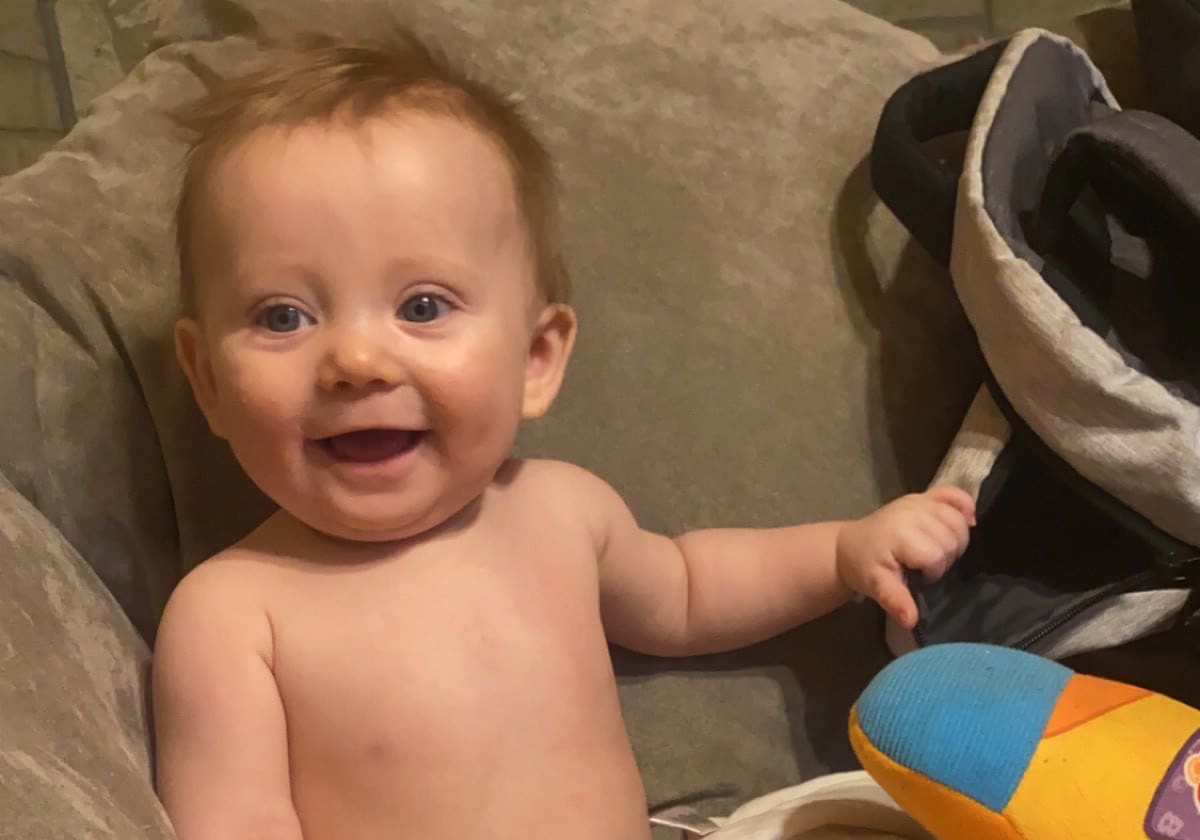
Rsv Treatment May Prevent Respiratory Virus In Babies

Understanding The Difference Between Rsv And Covid 19 Rainbow Pediatrics Rainbow Pediatrics
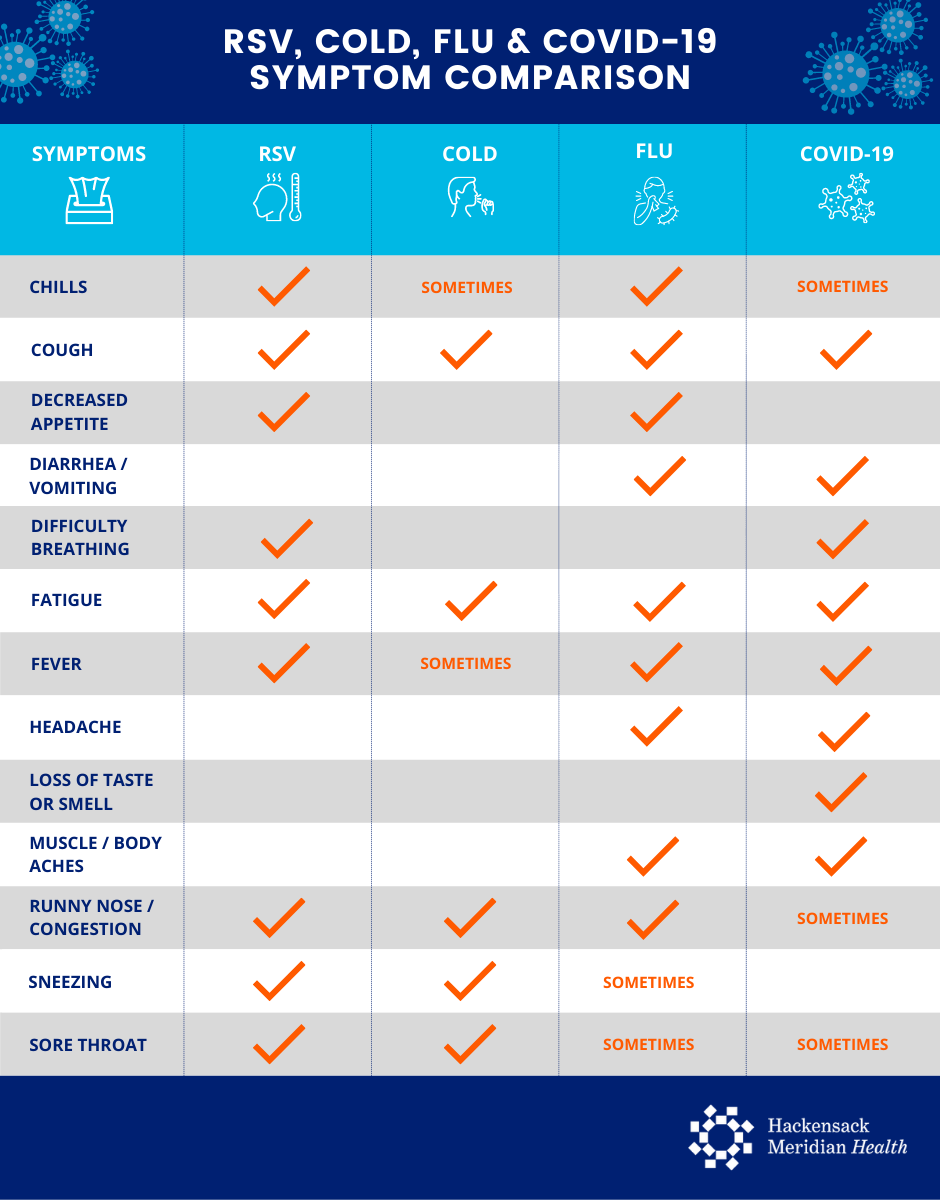
Rsv Cold Covid 19 Flu How To Id Common Kid Bugs

Rsv Respiratory Syncytial Virus Symptoms Causes Treatment Everyday Health
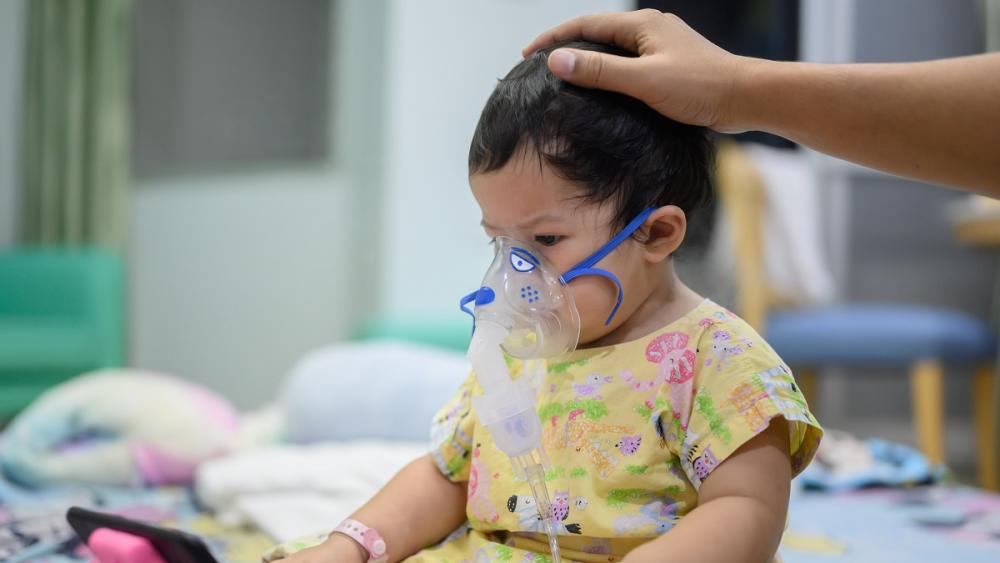
The Medical Minute What Parents Need To Know About A Rise In Rsv Penn State University

Viral Concerns Keep Your Children Safe From The Rsv Virus Lee Health

Common Seasonal Virus Rsv Hitting Earlier

Bronchiolitis And Rsv After Hours Kids Pediatric Clinic
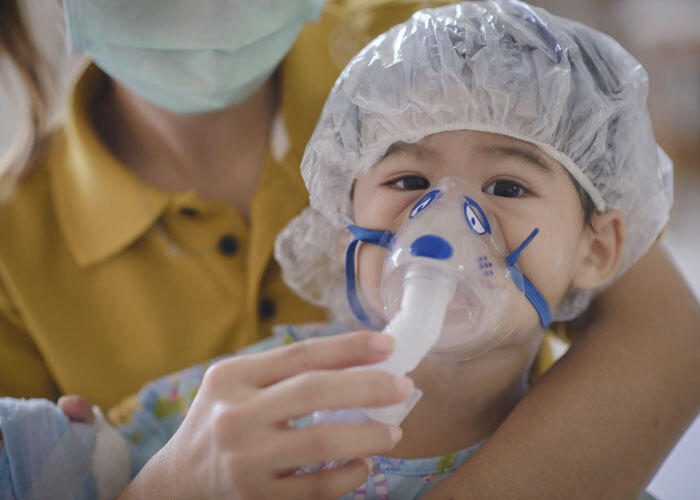
Rsv In Babies Symptoms Prevention Resemblance To Covid 19
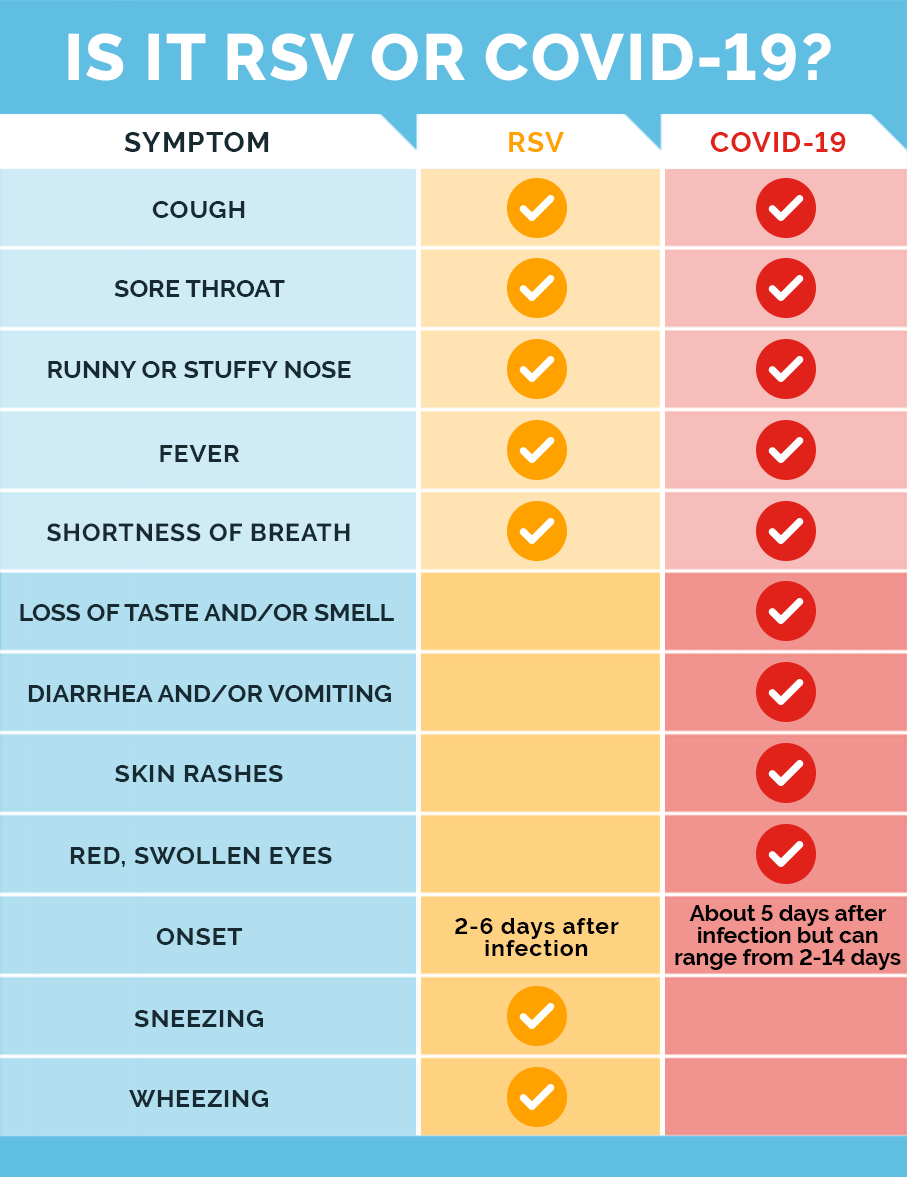
Why Is Rsv On The Rise This Summer
.jpg)
Addressing The Recent Rise In Rsv Cases

Rsv Cold Covid 19 Flu How To Id Common Kid Bugs